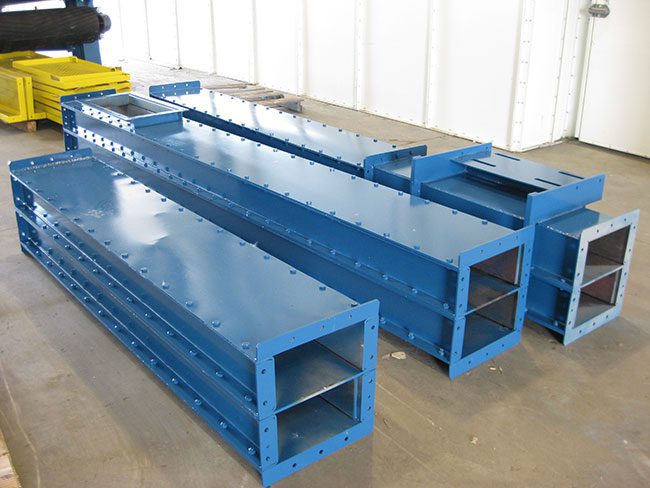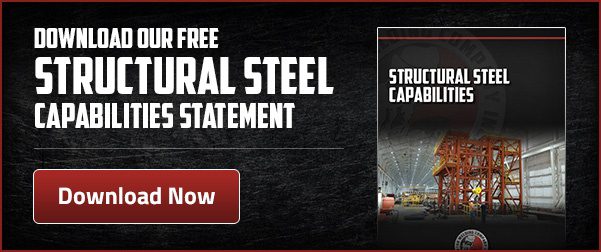Frequently Asked Questions About Structural Steel Fabrication
Structural steel fabrication is a highly specialized field that involves the cutting, shaping, and assembly of steel components to create large-scale framing and structures. It is a popular construction method used in commercial and industrial buildings. As with any method, there are frequently asked questions that arise. In this blog post, we will explore some of the most common questions we hear about structural steel fabrication.

1. What is structural steel fabrication?
Structural steel fabrication is the process of manufacturing steel components that are used in the construction of buildings, bridges, and other structures. The process involves cutting, shaping, and assembling heavy-duty steel components to create a final product that can be used in construction.
2. What are the benefits of using structural steel in construction?
There are many benefits to using structural steel in construction. Steel is incredibly strong and durable, making it an ideal material for building structures that need to withstand heavy loads or harsh weather conditions. Additionally, steel is a versatile material that can be fabricated into a wide variety of shapes and sizes, allowing for greater flexibility and creativity in the design of a building. Structural steel is also easy to assemble and install, which can save time and money during the construction process. Finally, steel is a sustainable material that is 100% recyclable, making it an environmentally-friendly choice for large construction projects.
3. What types of structures can be built using structural steel?
Structural steel fabrication can be used to build a wide variety of structures, including buildings, bridges, stadiums, and even roller coasters. Any structure that requires strength, durability, and flexibility can benefit from the use of structural steel.
4. How is structural steel fabricated?
Structural steel fabrication involves several steps, including cutting, shaping, and assembling steel components. The process typically begins with the creation of detailed plans and drawings, which are used to guide the fabrication process. The steel components are then cut and shaped using a variety of tools, state-of-the-art equipment, and skilled techniques, such as saws, plasma cutters, and bending machines. Once the components have been cut and shaped, they are assembled using welding or bolting methods.

5. What are the different types of steel used in structural steel fabrication?
There are several different types of steel that are commonly used in structural steel fabrication. Some of the most common types include carbon steel, stainless steel, and alloy steel. Each type of steel has its own unique properties and characteristics, which make it suitable for different types of construction projects.
6. What factors should be considered when choosing a structural steel fabricator?
When choosing a structural steel fabricator, there are several factors to consider. These include the fabricator’s experience and expertise, their reputation in the industry, their level of customer service, and their pricing. It is also important to choose a fabricator who uses high-quality materials and who has experience following industry standards and regulations.
7. What are some common challenges in structural steel fabrication?
There are several common challenges that can arise during the structural steel fabrication process. These can include issues with accuracy and precision during the cutting and shaping process, difficulties with welding or bolting components together, and challenges related to transportation and installation. It is important to work with an experienced and skilled fabricator who can anticipate and address these challenges to ensure a successful, on-time construction project.
8. How long does the structural steel fabrication process take?
The length of the structural steel fabrication process can vary depending on the size and complexity of the project. Generally, smaller and simpler projects will take less time to fabricate than larger and more complex ones. It is important to work with a fabricator who can provide a detailed timeline and schedule for the fabrication process to ensure that the project is completed on time and within your budget.
In conclusion, hiring an experienced and skilled structural steel fabricator is crucial to the success of any construction project that involves the use of steel components. A structural steel fabrication partner who has a strong reputation in the industry, uses high-quality materials, follows industry standards and regulations, and provides excellent customer service can help to ensure that your project is completed to your exact specifications. By taking the time to research and choose the right fabricator for your project, you can help minimize common challenges and ensure that your final product is strong, durable, and meets all of your construction needs. To learn more about our structural steel capabilities or to get a quote on your next project, contact Swanton Welding Co. today.

